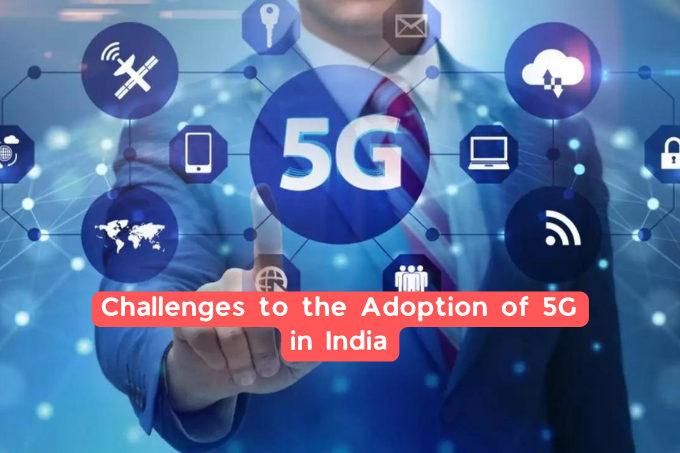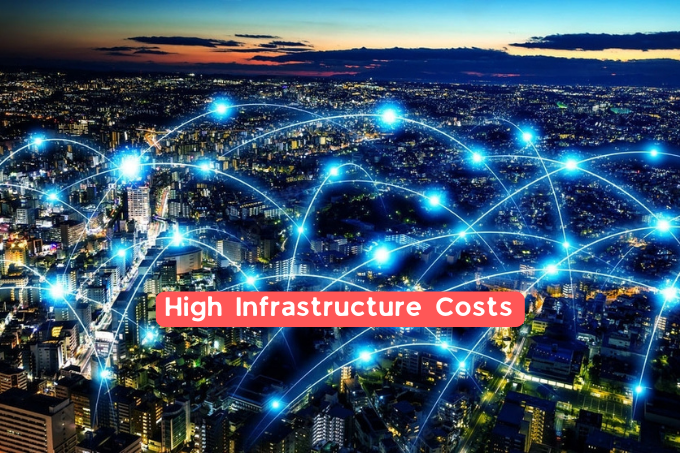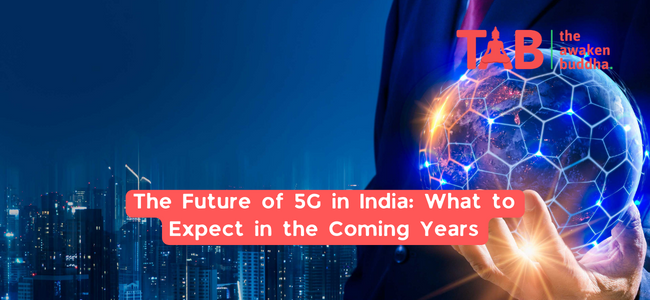India is one of the world’s largest and fastest-growing economies, with a massive population of over 1.3 billion. With the addition of smartphones and other mobile devices, there is an increasing demand for high-speed internet connectivity. The introduction of 5G technology promises to bring about a revolution in the way Indians access and consume data. This article will explore the future of 5G in India, what to expect in the coming years, and the potential benefits it will bring to Indian consumers.
Introduction to 5G
Before diving into the future of 5G in India, it’s essential to understand what 5G is and how it differs from previous generations of wireless technology. 5G is a fifth-generation wireless technology that promises faster download and upload rates, lower latency, and greater capacity. 5G technology operates on a higher frequency band, allowing faster data transfer rates and reduced network congestion. It will enable the development of new applications and services that were not possible before, such as virtual and augmented reality, connected cars, and the Internet of Things (IoT).
Current State of 5G in India
While 5G technology has been rolled out in several countries globally, India is yet to witness the launch of commercial 5G services. The Indian government has set a goal of making the country a 5G nation by 2022. However, due to various factors, such as the ongoing pandemic, geopolitical tensions, and lack of a suitable 5G ecosystem, the rollout of 5G in India has been delayed.
Potential Benefits of 5G in India
The introduction of 5G technology in India promises to bring about several benefits for Indian consumers, including:
Faster Download and Upload Speeds
One of the significant benefits of 5G technology is the faster download and upload speeds it offers. With 5G, consumers can expect download speeds of up to 20 Gbps, approximately 20 times faster than 4G. It will enable users to download and stream content such as movies and games in seconds, making the browsing experience much smoother.
Lower Latency
Latency refers to the time data travels from a user’s device to the network and back. 5G technology promises to reduce latency to just a few milliseconds, creating it ideal for applications requiring real-time interaction, such as gaming, virtual and augmented reality, and autonomous vehicles.
Greater Capacity
5G technology offers a much greater network capacity than 4G, allowing more devices to connect simultaneously. This will enable the development of new applications and services that were not possible before, such as smart cities, connected healthcare, and smart homes.
Challenges to the Adoption of 5G in India

While introducing 5G technology in India promises to bring about several benefits, several challenges must be addressed before its widespread adoption. These challenges include:
High Infrastructure Costs

The deployment of 5G infrastructure requires significant investments in installing new towers, fiber optic cables, and other equipment. These costs will probably be passed on to consumers, making 5G services more expensive than 4G.
Lack of Suitable 5G Ecosystem
Adopting 5G technology in India requires a suitable ecosystem to support it. This includes the availability of compatible devices, applications, and services. Currently, only a few 5G-compatible devices are available in India, making it difficult for consumers to take advantage of the technology.
Geopolitical Tensions
India’s ongoing geopolitical tensions with China, a global leader in 5G technology, havecaused delays in the rollout of 5G technology in India. Many Indian telecom companies have been hesitant to use Chinese equipment in their 5G networks, which has slowed down the adoption of the technology.
The Future of 5G in India
Despite the challenges, the future of 5G in India looks promising. The Indian government has brought several steps to promote adopting 5G technology. In 2020, the government announced a $6.5 billion package to promote the domestic manufacturing of 5G equipment and devices. The government has also allowed telecom companies to conduct trials of 5G technology in India.
Several Indian telecom companies have already started testing 5G technology in different parts of the country. Reliance Jio, one of the largest telecom companies in India, has announced that it will launch 5G benefits in India in the second half of 2021. Bharti Airtel, another major player in the Indian telecom industry, has partnered with several equipment manufacturers to conduct 5G trials in the country.
Adopting 5G technology in India is also expected to create several job opportunities there. According to a report by the India Cellular and Electronics Association (ICEA), adopting 5G technology in India could create over 40,000 direct and 3 million indirect jobs.
Conclusion
The introduction of 5G technology in India promises to bring about several benefits for Indian consumers, including faster download and upload speeds, lower latency, and greater capacity. While there are several challenges to adopting 5G in India, the government and telecom companies are taking several steps to promote its adoption. With the launch of 5G services expected shortly, Indian consumers can expect to witness a revolution in accessing and consuming data.
FAQs
1. When will 5G be launched in India?
While several Indian telecom companies have started testing 5G technology, the launch of commercial 5G services is expected in the second half of 2021.
2. What are the benefits of 5G technology in India?
The benefits of 5G technology in India include faster download and upload rates, lower latency, and greater capacity.
3. What are the challenges to adopting 5G technology in India?
The challenges to adopting 5G technology in India include high infrastructure costs, the lack of a suitable 5G ecosystem, and geopolitical tensions.
4. Will adopting 5G technology in India create job opportunities?
The adoption of 5G technology in India is expected to create over 40,000 direct jobs and 3 million indirect jobs, according to a report by the India Cellular and Electronics Association (ICEA).
5. Which telecom companies in India are testing 5G technology?
Several Indian telecom companies, including Reliance Jio and Bharti Airtel, are testing 5G technology in different parts of the country.










